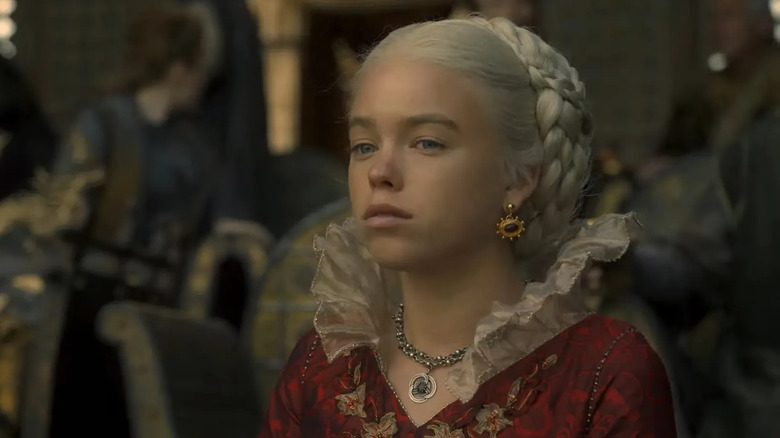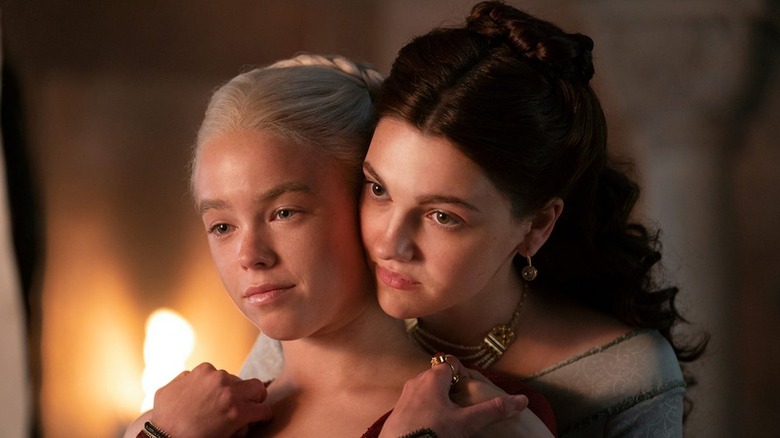House Of The Dragon's Westeros Is As 'Anti-Woman' As The Real World [Comic-Con]
As "House of the Dragon" heads its way toward the small screen, so too does the most complicated and often futile discourse regarding what many refer to as "The 'Game of Thrones' Problem."
Over the course of "Game of Thrones" nearly decade-long run, no subject was debated more heavily than the way the show depicted violence against women on screen. In particular, we're talking about violence that was sexual in nature. It was announced yesterday in a piece by The Hollywood Reporter that, while "House of the Dragon" was going to scale back its presentation of sex on screen, it would not shy away from the harsh realities of sexual violence. This of course meant that people online reacted Mature, Nuanced, and Reasonable™ about it all, and by that, I mean the absolute opposite.
George R.R. Martin is very aware of the controversy that surrounds the way his books and adaptations present sexual violence against women, and his defense is and has always been, that misogynistic violence is an unfortunate part of our history. "My books are fantasy but I get a lot of inspiration from history and I take elements from history and turn it up to 11," he said during the "House of the Dragon" panel that /Film attended at San Diego Comic-Con. Martin says his stories are deeply rooted in actual historical events (like "Game of Thrones" being inspired by the War of the Roses), and that he freely pilfers from historical events. Similarly, "House of the Dragon" is inspired by a time period known as The Anarchy, a time of unfathomable misogyny.
Our history is violence
As James Hibbard from THR pointed out, "House of the Dragon" is a show all about how "the patriarchy would rather destroy itself than see a woman on the throne." During The Anarchy time period, Henry I fully intended for his daughter Matilda to take over for him as a legitimate heir after he passed, but the English noblemen had other plans. "I don't think that Westeros is any more Anti-Woman or misogynist than real life and what we call history," said Martin.
What's always alarming, in my personal opinion, is that Martin writing from experience or empathy is seldom viewed as a possibility. Instead, there's an immediate bad faith assumption that Martin is some sleazebag who uses fantasy as an excuse to depict violence against women, instead of using fantasy as a vehicle to challenge our perceptions of power imbalances and the way misogynistic violence has continued to prevail even in our current age.
I have written in great detail about how my own lived experiences as a survivor of violent sexual assault has impacted the way I consume media, and what makes a show like "Game of Thrones" or "House of the Dragon" so difficult to discuss is that our lived experiences will have a massive contribution to our own perception of what is being depicted on screen. It's next to impossible to separate the two, and as such, there will never be a way to depict this particular type of violence on screen in a way that will appease all viewers.
For what it's worth, I believe Martin has always carefully handled these stories well in his books, but his intention doesn't always translate when put to screen, and that's not on him.

